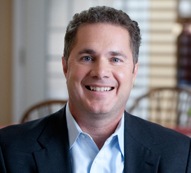Raises for everyone, just don’t ask how

By Paul Brennan | Iowa Watcdog
DES MOINES, Iowa — U.S. Rep. Bruce Braley knew he was on safe ground when he made a campaign stop at La Querica in Norwalk, where he promoted his plan to raise the federal minimum wage to $10.10 per hour.
The company, which produces “unique dry cured meats of the finest quality,” already has a $10.10 per hour starting wage.
No one at La Queica asked Braley, D-Waterloo, on Sunday about the consequences of his plan as he sampled its award-winning prosciutto.
Braley would have received a much more skeptical reception at the Burger King in Ottumwa, which doesn’t have award-winning prosciutto, but does have employees making the federal minimum wage of $7.25 per hour.
“I’d like the congressman to explain where the money to pay for this will come from,” Randy Bradley, who owns the fast food restaurant, told Iowa Watchdog.
“This is a 40 percent increase he’s proposing. It would wipeout all my profits,” Bradley said.
Braley has made raising the federal minimum wage a centerpiece of his campaign for the U.S. Senate. He presents it as a matter of simple economic fairness for workers, pointing out that the purchasing power of the minimum wage has declined since 1968.
But Braley has not been willing to answer serious questions about his plan’s impact on businesses.
MINIMAL EXPLANATION: Bruce Braley is making raising the minimum wage a centerpiece of his U.S. Senate campaign, but isn’t answering questions about it impact on small business.
Last week, the National Federation of Independent Business, a nonpartisan advocacy organization that represents small business owners, publicly asked Braley “to explain his theory on how Iowa small businesses and family farms can absorb such an increase without having to make difficult cuts elsewhere.”
In response, the Braley campaign released a statement from a Des Moines small business owner who said he favored Braley’s proposed increase.
“That nonresponsive response is the only reply we’ve received so far,” NFIB spokesman Jack Mozloom told Iowa Watchdog.
Iowa Watchdog submitted questions to the Braley campaign about its failure to respond to NFIB and the congressman’s plan to raise the minimum wage, but has received no reply.
“We’d still like the congressman or anybody else to explain how is it possible to cause a 40 percent increase in hourly labor without causing damage to those employers who can’t absorb the increase,’ Mozloom said.
“We don’t deny that some people and some businesses will be OK with this, but others won’t be. What we’d like to have is an honest conversation about the consequences of such a large increase,” Mozloom said.
Bradley said he understands what the consequences would be for his business and his workers.
“This isn’t just going to affect my workers who make minimum wage. It will affect the whole pay scale. It would be insulting to the 80 percent of my workers who make more than minimum wage to ask them to take a reduction in pay, just because the minimum wage has gone up,” Bradley said.
“There’s very little room for me to raise my prices, without it causing a decline in business. My other costs aren’t going to suddenly decrease. So step one is cutting labor costs, cutting hours.”
Bradley wouldn’t be alone. The only peer-reviewed study of the impact of previous minimum wage increases in Iowa found that each led to a reduction in labor hours.
But Bradley said he would have to go beyond just cutting hours for his workers.
“I’d also have to look at automating more of the work. The equipment is expensive, but when labor costs keep increasing, it become more affordable as an alternative. And that will mean hiring less and fewer opportunities for young people looking for their first job,” Bradley said.
“I understand that people’s natural response is that they want wages to be raised, but if they don’t understand business, they don’t understand what the results are going to be.”
Contact Paul Brennan at pbrennan@watchdog.org







